- Echanges et mise en réseau
- Connaissance et apprentissage
- Plaidoyer
- Nos thèmes
Au cours du premier semestre de cette année, le Réseau Medicus Mundi Suisse a élaboré sa stratégie pour les années 2024-2027 : aperçu général d'une stratégie courageuse de renouvellement.

La stratégie à venir a été développée - comme il est d'usage chez nous - en étroite collaboration avec les organisations membres. Elle a finalement été adoptée lors de l'assemblée générale du 7 juin 2023. Actuellement, nous travaillons encore sur de petites adaptations éditoriales. Mais en voici déjà les grandes lignes.
L'optimisme avec lequel MMS aborde son engagement en faveur de la santé pour tous dans sa 50e année d'existence peut surprendre compte tenu des circonstances de crise et de guerre. Notre analyse montre toutefois que les populations ne peuvent faire face à des défis complexes si leurs besoins et leurs droits en matière de santé ne sont pas satisfaits.
Pour faire progresser le droit à la santé, MMS s'ouvrira à d'autres groupes sociaux concernés par la santé au sens large et les impliquera dans les échanges et les processus d'apprentissage pour les membres. Étant donné que les déterminants sociaux, économiques et environnementaux de la santé doivent être améliorés à l'échelle mondiale, nous, les acteurs de la coopération internationale en matière de santé et de la santé globale, nous devons nous ouvrir aux connaissances issues du mouvement climatique et environnemental ou des sciences de l'environnement, des planificateurs de l'urbanisation et des transports ou des mouvements sociaux. Cette ouverture implique également que nous nous adressions davantage aux jeunes professionnels de la santé et que nous les intégrions davantage dans nos débats et nos processus de connaissance et d'apprentissage.
Nous voulons également examiner de plus près l'impact de la Suisse sur la santé mondiale. Pour ce faire, nous souhaitons développer un Swiss Impact Report on Global Health au cours des prochaines années et le publier régulièrement. Ce rapport nous permettra de renforcer les bases du dialogue avec les différents décideurs et décideuses suisses. Ce dialogue basé sur les connaissances en matière de politique de développement doit permettre (de continuer) d'améliorer à moyen terme l'action responsable des acteurs et actrices locaux en faveur de la santé globale. Le Réseau MMS sera ainsi renforcé en tant que centre de compétences de la société civile pour la coopération internationale et la santé.
Martin Leschhorn Strebel
Réseau Medicus Mundi Suisse
E-Mail

L'initiative pour l'inclusion - VOTEZ MAINTENANT !
"Les droits des personnes handicapées sont des droits humains. En Suisse, environ une personne sur cinq vit avec un handicap. Les personnes concernées sont exclues de la vie publique dans de nombreux domaines et leur autodétermination est limitée. Il est du devoir de l'Etat d'éliminer ces discriminations, de promouvoir l'inclusion et de garantir l'égalité de fait. Amnesty Suisse soutient l'initiative pour l'inclusion, qui demande l'égalité effective des personnes en situation de handicap."

"Recent analyses by Swiss TPH show that not only heat waves, but also moderately hot temperatures, contribute to heat-related fatalities. On behalf of the Swiss federal government, Swiss TPH now monitors heat-related deaths in Switzerland on an annual basis. This monitoring provides a long-term record of the effects of climate change on health and helps to identify adaptation measures."
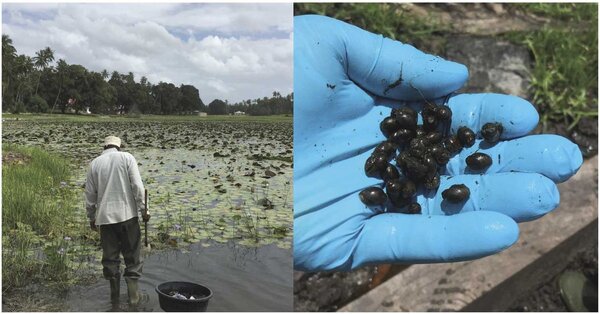
A new study by Swiss TPH and partners
"Zanzibar is among the few places in sub-Saharan Africa where interruption of Schistosoma transmission seems an achievable goal. A new study by Swiss TPH and partners reviews 100 years of research and efforts to control schistosomiasis in Zanzibar. We have contributed to these efforts through our long-standing research into the disease. The review identify milestones in the fight against the parasitic worm disease. A major achievement was the reduction of infected individuals from historically over 50% to under 5% in 2020, leading to a substantial improvement in the health for the Zanzibari population. While challenges remain, the results published in Advances in Parasitology suggest that with sustained commitments, the transmission of the disease could be stopped by 2030."
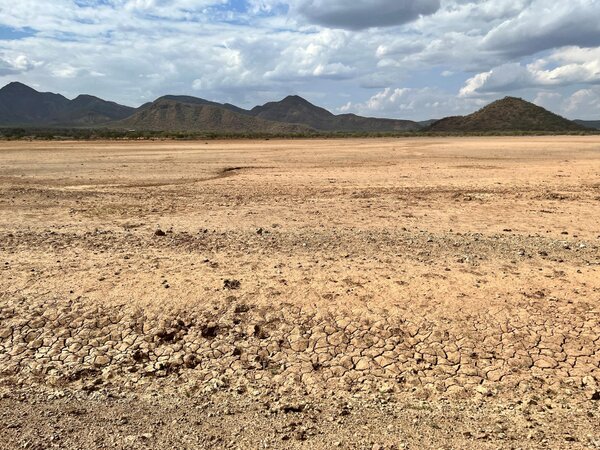
"Trop ou trop peu d’eau, des températures en hausse et des cyclones – les pays du Sud sont particulièrement touchés par les conséquences du changement climatique. Dans notre série, des collaborateurs de la CRS nous parlent de la situation dans leur pays d’intervention. (...) Exemple Éthiopie: Au sud de l'Éthiopie, il n'a pas plu durant deux ans. La population souffre de la sécheresse persistante. La majeure partie du bétail a péri, privant les habitants de leurs moyens de subsistance. Amélie Courcaud, déléguée de la CRS pour l’Ethiopie, nous raconte dans un petit film comment la Croix-Rouge apporte son aide sur place."
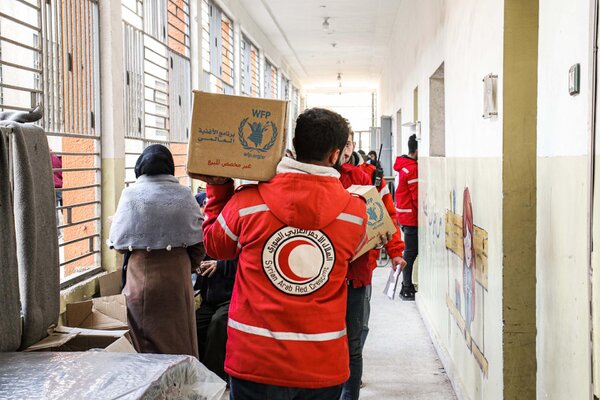
"Six mois après le séisme qui a frappé la Syrie, des dizaines de milliers de personnes vivent encore dans des hébergements temporaires. La CRS fournit une aide d’urgence et contribue aux côtés du Croissant-Rouge à améliorer l’accès à la santé et à l’hygiène. En Turquie, elle soutient financièrement l’action du Mouvement international de la Croix-Rouge et du Croissant-Rouge."
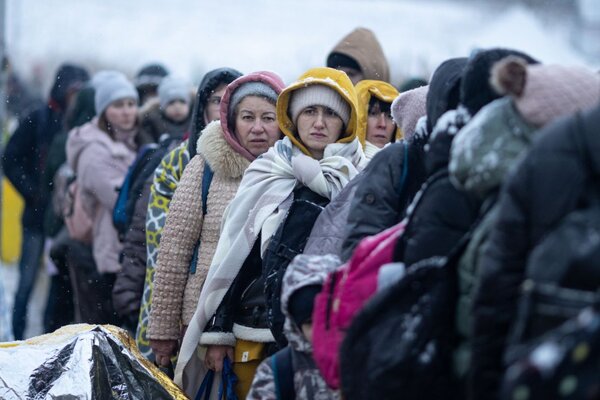
"Notre rapport d’activité 2022 revient sur les temps forts de cette année. Catastrophes naturelles, conflits armés ou crises chroniques, nous sommes plus que jamais présents auprès des plus vulnérables. En 2022 notre organisation est venue en aide à 2’552'100 de bénéficiaires à travers le monde. (...) 2022 c’est aussi l’aboutissement de trois ans de négociations contre les bombardements en milieu urbain. Avec le réseau international sur les armes explosives (INEW) nous avons écrit une nouvelle fois l’histoire avec un accord pour la protection des civils dans les conflits armés."
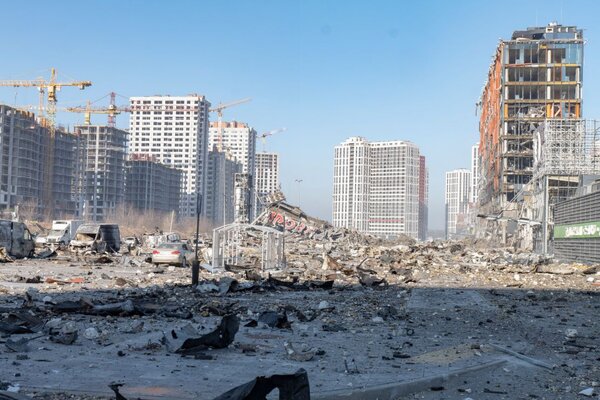
"Nous sommes scandalisés par l'intensification des attaques russes qui ont touché des civils et des infrastructures civiles dans des zones peuplées au cours des dernières semaines. Nous condamnons fermement l'utilisation des armes explosives en zones peuplées et ses conséquences sur les civils et les infrastructures civiles en Ukraine. Nous demandons l'arrêt immédiat des bombardements et des pilonnages russes, qui se sont multipliés à un rythme effrayant au cours des dernières semaines, avec des effets dévastateurs sur les civils. La protection des civils pendant les conflits armés est le fondement du droit international humanitaire : les attaques indiscriminées ou délibérées contre les civils sont interdites par le droit international."
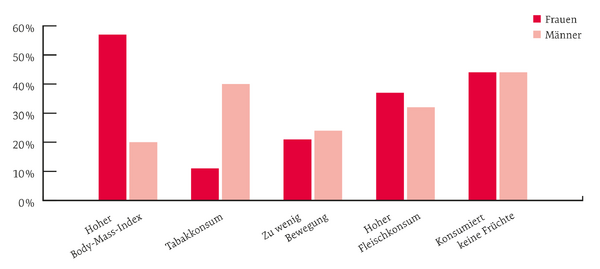
Diabetes oder Bluthochdruck belasten zunehmend die Gesundheitsversorgung im südlichen Afrika. Deshalb widmet sich SolidarMed in einer Zusammenarbeit mit dem Universitätsspital Basel dieser Problematik.
"Das mehrjährige ComBaCaL-Projekt soll die Krankheitslast durch nicht-übertragbare Krankheiten in Lesotho reduzieren. In einem ersten Schritt erfasste SolidarMed zusammen mit der klinischen Epidemiologie der Universität Basel die aktuelle Situation: Wie verbreitet sind Diabetes, Übergewicht, Rauchen oder Bluthochdruck in der Bergbevölkerung Lesothos tatsächlich? Über 6’000 Personen in den zwei Distrikten Mokhotlong und Butha-Buthe wurden dabei miteinbezogen. Noch nie wurden diese Zahlen in Lesotho bisher so systematisch erhoben. Die Resultate sind alarmierend. Bluthochdruck und Diabetes führen zu einer grossen, bisher wenig beachteten Krankheitslast in der Bevölkerung. Die Lebensqualität und Produktivität der Betroffenen ist bereits heute stark eingeschränkt."

Entwicklungsökonomin Isabel Günther forscht zu Armut, Ungleichheit und Bevölkerungsentwicklung auf dem afrikanischen Kontinent. Und stellt fest: Die positiven Entwicklungen auf dem afrikanischen Kontinent werden oft übersehen. Ein Gespräch über Fehlannahmen, Fortschritte und unseren Umgang mit Zahlen.
"Ihrer Forschung zufolge verbinden die meisten Menschen hauptsächlich negative Dinge wie Armut, Hunger und Korruption mit Afrika. Ist das ein falsches Bild vom Kontinent? Es ist nicht grundlegend falsch, denn extreme Armut ist nach wie vor eine Realität für Millionen von Menschen dieser Welt, und überdurchschnittlich viele davon leben in Afrika südlich der Sahara. Dennoch ist ein per se negatives Bild von «Afrika» in zweifacher Hinsicht falsch."
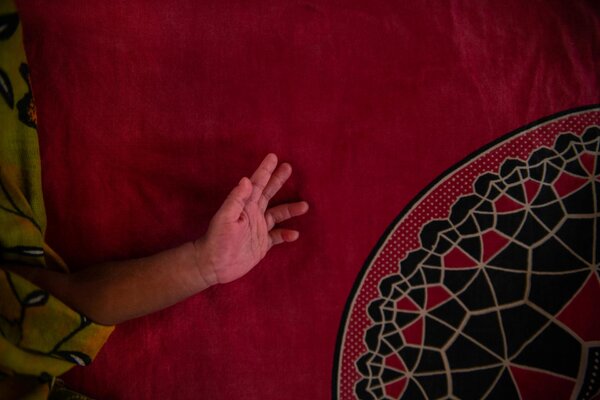
Jörg Arnold, Fairpicture, sur l’importance de la décolonisation pour les organisations de développement: un appel.
Pour bon nombre d’organisations de coopération au développement, la «décolonisation» est un sujet difficile. Il fait appel à leur capacité à l’autocritique et la question de la légitimité de leur propre action se pose rapidement. Néanmoins, elles sont appelées à prendre part au débat.
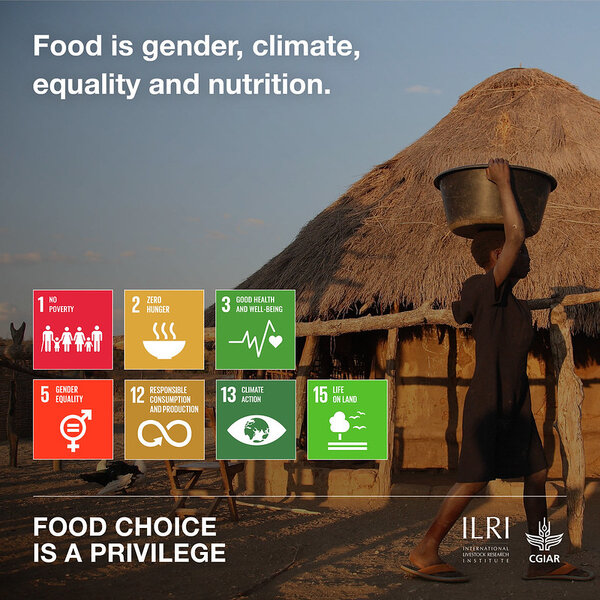
Les objectifs de développement durable de l’ONU sont en crise. L'évaluation par l’ONU d'environ 140 des 169 objectifs pour 2023 montre que seuls 12 % d'entre eux présentent des progrès prometteurs et qu'environ 30 % n'ont pas bougé, voire ont régressé par rapport à 2015. Par exemple, le nombre de personnes souffrant de la faim est actuellement le plus élevé depuis 2005. L'auteur plaide pour que de nouvelles priorités soient fixées en raison des crises interdépendantes actuelles, comme le changement climatique par exemple, afin que les objectifs puissent encore être atteints. Il ne faut en aucun cas, comme l'a laissé entendre la session spéciale de l'Assemblée générale de l’ONU sur les objectifs de développement durable en septembre, que les objectifs puissent être repoussés de 10 à 15 ans - ce serait une catastrophe. Au lieu de cela, il faut établir de nouvelles bases pour atteindre le succès, ce qui signifie également renouveler le système financier international.
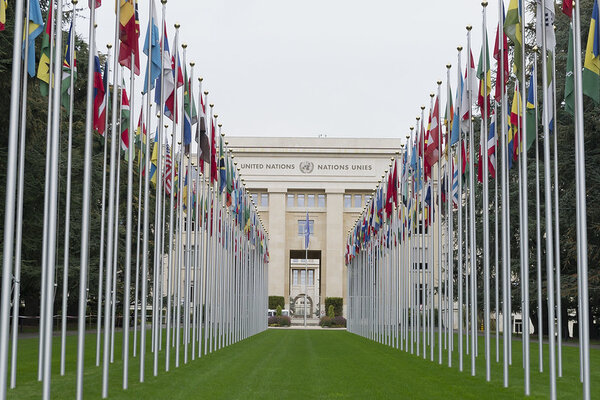
"The UN General Assembly will convene three High-Level Meetings on health during its 78th session (UNGA 78) in New York in September 2023. These present a historic opportunity for world leaders to place health back on the high-level political agenda as they recommit to ending tuberculosis (TB), delivering universal health coverage (UHC) and strengthening pandemic prevention, preparedness, and response. At this mid-point towards the Sustainable Development Goals (SDGs), the world is off track to achieve the health targets by 2030. Millions of people cannot access life-saving and health-enhancing interventions. Out-of-pocket spending on health catastrophically affects over 1 billion people, pushing hundreds of millions of people into extreme poverty. The situation has worsened due to the COVID-19 pandemic.ng pandemic prevention, preparedness, and response."

Comment written by Mariska Meurs, Myria Koutsoumpa and Valeria Huisman, Wemos, Amsterdam
"The authors wholeheartedly agree with Labonté: global health equity needs radical changes in economic thinking and policies, including degrowth and reducing consumption in parts of the world. But to mobilize sufficient people for radical change, reducing overconsumption and for degrowth, we may need to stop calling it that. Language is important and using the same frames and words as our opponents do can be counterproductive. Global health advocates need to be strategic about framing, use hope-based communication and develop attractive and convincing narratives. By doing so, hopefully we can bring these messages across to larger groups of people and increase the push for social change."
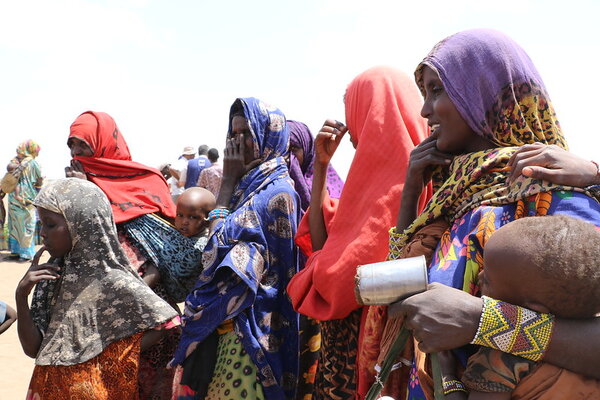
Gulf between rich and poor increases risk of climate breakdown as well as entrenches poverty, says letter to UN and World Bank
"Failure to tackle the widening gulf between the world’s rich and poor will entrench poverty and increase the risk of climate breakdown, a group of more than 200 leading economists have said. In a letter to the UN secretary general, António Guterres, and the World Bank president, Ajay Banga, the signatories from 67 countries call on the two bodies to do more to reverse the sharpest increase in global inequality since the second world war."
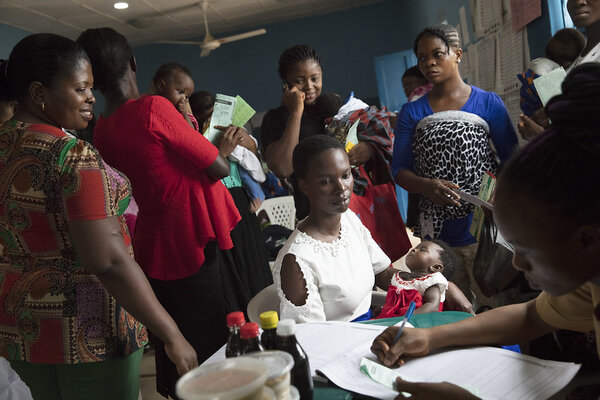
"The understanding of primary health care (PHC) has evolved significantly, evident in key World Health Organization (WHO) reports, promoting PHC as a means for health for all, identifying key health systems reforms and focusing on health care experience. This study explores the WHO’s current framing of PHC, and its configuration of WHO Collaborating Centres (WHOCCs) on PHC using the data available on the WHOCCs Portal. We analysed the following variables: title, institutions, location, economy, date of mandate, objectives, subject, and activity. There were 13 WHOCCs on PHC, nine based in North America and Europe, and none in Africa. Only three were in Low- and Middle-Income Countries (LMICs). (...) The concern is an absence of WHOCCs in the Africa and Latin and South Americas, and under-representation in LMICs. Designating more institutions from the South with expertise in PHC is necessary to address the challenges post-Astana."
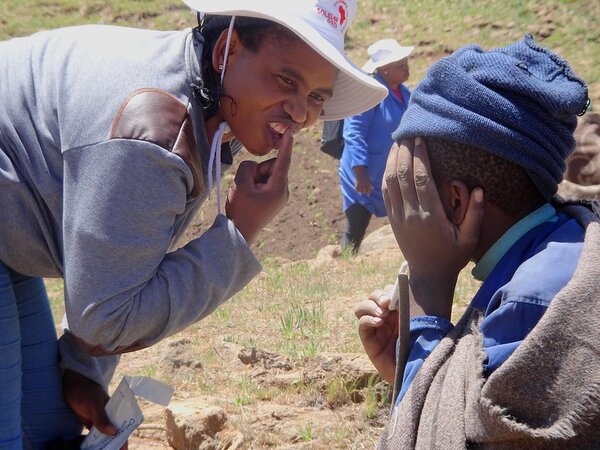
Pas de découverte révolutionnaire, mais une déclaration importante de l'OMS lors de la « 12th International AIDS Society Conference » de cette année à Brisbane, en Australie.
En 2008, la Commission fédérale suisse sur le sida a émis l'affirmation controversée selon laquelle les personnes infectées par le VIH qui suivent un traitement antirétroviral (TAR) efficace ne transmettent pas le VIH. Une conclusion qui a depuis été confirmée par de nombreuses études et par la campagne U=U (non détectable=non transmissible) lancée en 2016. Ce qui ne faisait aucun doute pour les scientifiques et les organisations internationales telles que l'ONUSIDA n'est en revanche pas suffisamment connu des personnes vivant avec le VIH et a toujours été remis en question par le personnel médical. La déclaration de l'OMS, qui a finalement été adoptée lors de la conférence sur le sida de cette année en Australie, est donc d'autant plus importante. Les experts sont unanimes : maintenant que l'OMS confirme que "non détectable signifie non transmissible", les doutes existants peuvent être levés. Les avantages du traitement TAR en termes de prévention sont désormais connus et pleinement visibles et pour de nombreuses personnes infectées, savoir qu'elles ne peuvent pas contaminer leurs partenaires sexuels est une libération. Comme le souligne Linda-Gail Bekker et. al dans l'article du Lancet, cela signifie une déstigmatisation et a pour conséquence que davantage de personnes sont encouragées à se faire dépister ou à suivre un traitement. Elle souligne également qu'il est nécessaire, surtout dans les pays du Sud, de mettre à disposition beaucoup plus de tests et d'inclure dans d'autres recherches des personnes qui restent souvent à l'écart et pour lesquelles aucune donnée n'est disponible, comme c'est le cas, par exemple, pour les consommateurs de drogues.
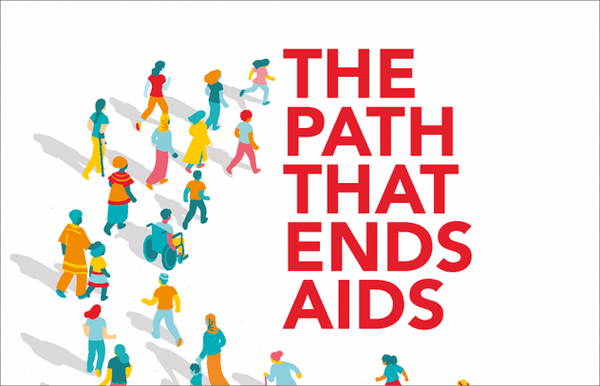
Press release
"A new report by UNAIDS shows that there is a clear path that ends AIDS. This path will also help prepare for and tackle future pandemics and advance progress towards achieving the Sustainable Development Goals. The report, ‘The Path that Ends AIDS’, contains data and case studies which highlight that ending AIDS is a political and financial choice, and that the countries and leaders who are already following the path are achieving extraordinary results. Botswana, Eswatini, Rwanda, the United Republic of Tanzania, and Zimbabwe have already achieved the “95-95-95” targets. That means 95% of the people who are living with HIV knowing their HIV status, 95% of the people who know that they are living with HIV being on lifesaving antiretroviral treatment, and 95% of people who are on treatment being virally suppressed. A further 16 other countries, eight of them in sub-Saharan Africa, the region which accounts for 65% of all people living with HIV, are also close to doing so."

PEPFAR reauthorization in trouble
"A 20-year-old, U.S.-funded AIDS relief program that is credited with saving tens of millions of lives around the world may not be reauthorized if conservative and anti-abortion activists are successful in a campaign against it. (...) PEPFAR is one of the most successful and impactful global health programs in the world's history," Kavanagh said. But when the Trump administration reinstated the Mexico City policy, "quite a few organizations actually dropped out from being PEPFAR recipients," he said. Kavanagh said that many of the organizations that are most experienced at providing the kind of interventions that made PEPFAR successful are local family planning organizations that offer a range of services and counseling, often including abortion. "Local family planning organizations were no longer allowed to provide HIV prevention programming and to receive PEPFAR funding, and that was a huge loss for the program," he said."
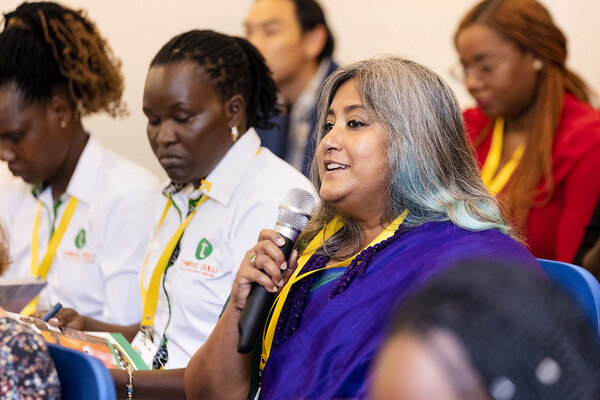
Including abortion in universal health coverage was one of the main messages emerging from the Women Deliver conference this week in Kigali, Rwanda.
"The conference, which ends Thursday, showcased stories of countries that have expanded access, and speakers called for abortion to be treated as a simple medical procedure. “If you cannot legalize or you cannot access safe abortion, I think you’ll never have equitable health care,” Dr. Sangeeta Kaushal Mishra, a health secretary at Nepal’s Ministry of Health and Population, told the audience. Three out of 4 countries penalize women for seeking abortion care, according to Dr. Bela Ganatra, head of the World Health Organization’s prevention of unsafe abortion unit. And where it is criminalized, unsafe abortions lead to complications that are a leading cause of maternal deaths and morbidities."

Key populations invisible in the universal health coverage agenda!
"With the upcoming UN High-Level Meeting on UHC 2023, this year is all about Universal Health Coverage (UHC). Universal health coverage aims to ensure that all people receive essential health services without falling into poverty due to high health expenses. We believe that UHC is critical for achieving a world without AIDS, and for realising sexual and reproductive health and rights for all. In the run-up to the meeting, we launched the #MyHealthMyRights campaign to highlight the need for health for all, the importance of UHC for key populations –the barriers and opportunities they face-, and what changes we want to see in a healthy world for all.
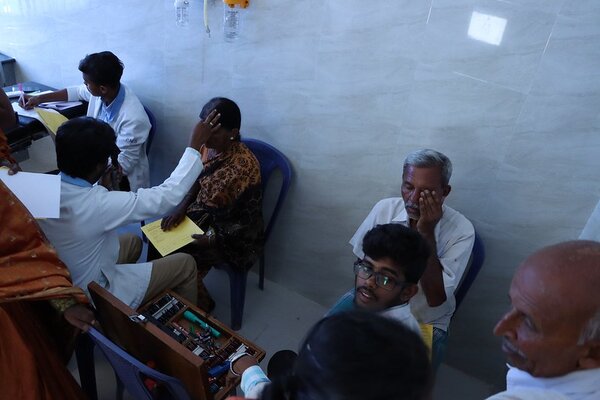
"People living with HIV have various symptoms and concerns despite advances in antiretroviral therapy (ART). Their well-being is linked to a number of interconnected dimensions including physical, psychological, social, spiritual, and socioeconomic factors. Although global HIV initiatives are still heavily focused on diagnosis, treatment, adherence, and viral suppression, new patient-centered care initiatives are increasing worldwide that look beyond these issues to promote well-being and a more personalized outcome approach. In practice, patient-centered care means that patients can access the care they need and that health providers deliver high-quality care that is responsive to the needs of patients."

Camp de réfugies Bidibidi en Ouganda
"Dans le camp de Bidibidi, les menstruations sont source de problèmes. Faute de les recevoir gratuitement, les serviettes hygiéniques sont difficiles d’accès. Pour faire face à ce problème, l’EPER lance un projet pour en fabriquer. Le premier atelier vient d’avoir lieu."
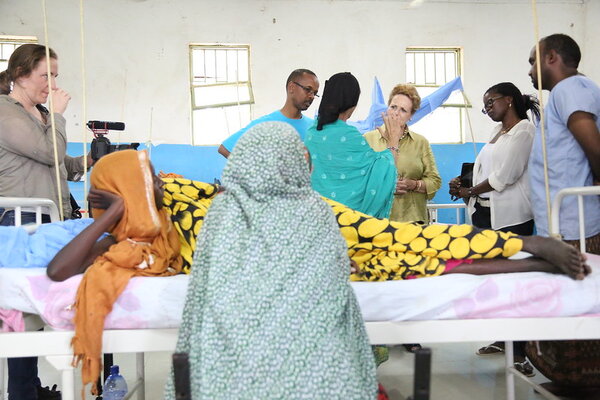
Policy considerations for decision-makers
"The 2030 health-related Sustainable Development Goals call on countries to end AIDS as a public health threat and also to achieve universal health coverage (1). WHO promotes primary health care (PHC) as the key mechanism for achieving universal health coverage, and the PHC approach is also essential for ending AIDS and reaching other Sustainable Development Goal targets. This publication helps decision-makers to consider and optimize the synergies between existing and future assets and investments intended for both PHC and disease-specific responses, including HIV. Although it mainly focuses on opportunities for addressing HIV and PHC approaches together, many of the suggestions can be applied to or adapted to other disease-specific responses as they relate to PHC."

Interview with Stefan Germann, Fondation Botnar at Women Deliver, Kigali Ruanda.
"Kigali, Rwanda — In the 21st century, young people are increasingly living their lives in urban and digital spaces. (...) "We have chosen the topic of AI and digital spaces, and we are starting to look at both the upsides and risks of AI and digital technologies. Our engagement here at Women Deliver is very much focused on young people's well-being. We focused on getting young people's voices around mental health on our radio station. Rising Minds is a pop-up radio show co-designed by young people and some of our partners. We have identified that many young people are struggling with their mental health, and we want to use our platform to amplify their voices and raise awareness of this issue," Stefan Germann said."
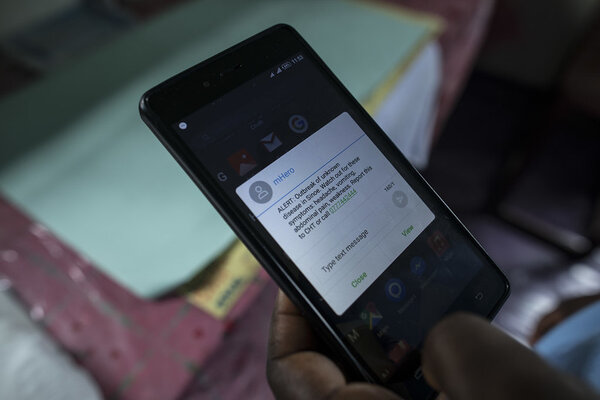
This is the first overview of systematic reviews to interpret the impact of digital health technologies on the competencies and performance of health-care workers
"A new WHO/Europe study published in The Lancet Digital Health shows that the use of mobile technologies, telemedicine and other digital tools intended to support clinical decisions have improved health workers’ performance and mental health, as well as their skills and competencies. The study, conducted globally, also warns that there are still gaps in the evaluation and impact of these technologies in lower- and middle-income countries."
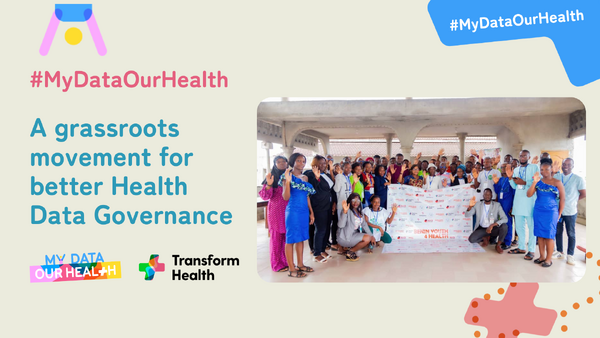
"Since the virtual launch of the #MyDataOurHealth campaign on 23 January, our 28 community-based partner organisations in East and West Africa have made remarkable progress, raising awareness of the issue of health data governance among the public, the media and politicians. As a result of this engagement more people are aware of the issue and starting to value their health data, more organisations are calling for government action on this issue, there is more media coverage, and more engagements with governments across East and West Africa. (...) Our partners have been engaging politicians directly to raise their awareness of the issue and to get the government to endorse the Health Data Governance Principles and support calls for the creation of a global framework at the World Health Assembly."
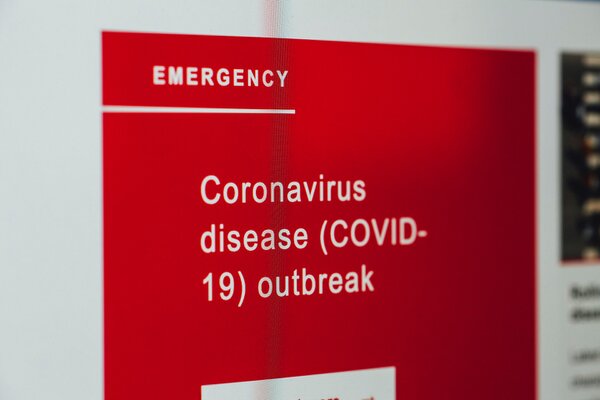
"The Pandemic Fund allocated its first set of 19 grants and the Africa Centres for Disease Control and Prevention is not pleased with the outcome. Only five African countries will benefit from this funding, representing less than 5% of the continent’s population, the Pan-African public health agency said in a press release Thursday. This includes Burkina Faso, Cape Verde, Ethiopia, Togo, and Zambia. (...) “Africa CDC remains concerned about the limited impact of this first allocation on pandemic preparedness, prevention, and response (PPPR) in Africa due to its limited size and lack of regional approach,” the agency wrote."
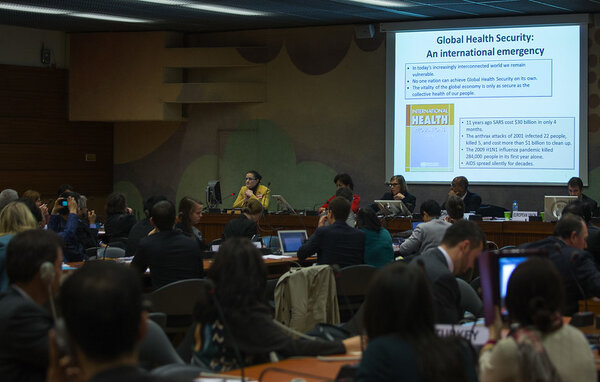
"While July saw a crush of global pandemic-related meetings – some joint and some clashing – to accommodate tight schedules and northern summer holidays, achieving a pandemic-proof world is still a long way off. The two pandemic negotiations underway at the World Health Organization (WHO) have held individual and joint meetings over the past few weeks, with talks dominated by equity, early warnings for pandemics and financing. The Working Group on amendments to the IHR (WGIHR) is strengthening the International Health Regulations (IHR), the only legally binding global rules governing health emergencies. Meanwhile, the Intergovernmental Negotiating Body (INB) is developing a pandemic accord to address other gaps that emerged during COVID-19 – particularly how to ensure equitable access to vaccines and medicines."

"The worst outcome of the two World Health Organization (WHO) pandemic negotiations currently underway would be the adoption of contradictory definitions and processes, warned Dr Mike Ryan, the head of health emergencies at the World Health Organization (WHO) on Friday. “At the very minimum, the two instruments will need to be very aligned on the definitions they use,” stressed Ryan at a joint meeting of the Intergovernmental Negotiating Body (INB) negotiating a pandemic accord, and the Working Group on the International Health Regulations (WGIHR), which is amending the globally binding regulations relating to public health emergencies."
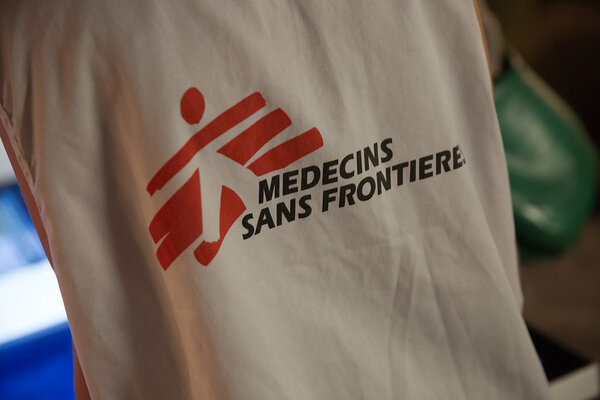
MSF Position Paper
"Multiple global processes and initiatives are currently underway to create and improve global systems to prevent, prepare for and respond to future global health emergencies (PPR). These include the negotiations for a Pandemic Accord, amendments to the International Health Regulations, and a UN High-Level Meeting on PPR. MSF's experience of responding to infectious disease outbreaks, epidemics and pandemics has shown that in order for PPR initiatives to be effective, we need to address the structural determinants of inequity. In this Position Paper, we discuss principles, mechanisms and actions that can help achieve equity in how medical products are developed, where they are produced, at what price they are sold, and who gets access to them first."
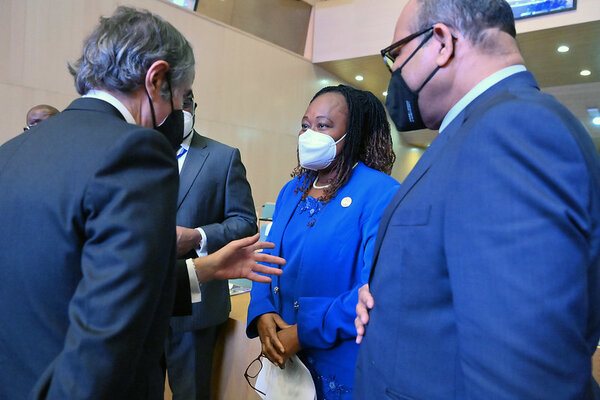
Une étude récente menée au Botswana prouve ce que l'on sait depuis longtemps : L'Afrique manque de médicaments et de possibilités thérapeutiques pour traiter la cause de mortalité désormais la plus importante du continent. Selon l'étude, les taux de mortalité en Afrique australe sont parmi les plus élevés au monde, ce qui est également dû au diagnostic tardif et à l'absence de programmes de dépistage. D'ici 2030, on s'attend à environ un million de décès par cancer chaque année. Au Botswana, le taux de mortalité par cancer est déjà supérieur à 63%. Les types de cancer les plus fréquents sont le cancer du col de l'utérus, du sein, de la prostate et du poumon. "Le cancer menace les populations d'Afrique subsaharienne à un point tel qu'il faut agir rapidement", avertit l'auteur de l'étude, Richard Marlink. L'étude fournit un guide sur la manière d'améliorer l'accès à des traitements hautement efficaces, tels que ceux disponibles dans d'autres régions du monde.
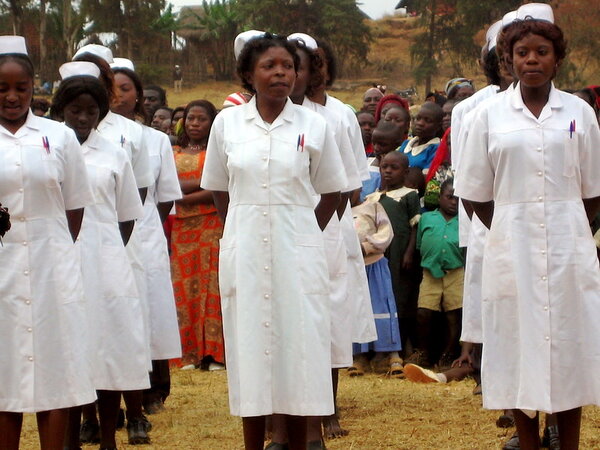
By Remco van de Pas, Linda Mans & Myria Koutsoumpa
"The World Health Organization’s Global Strategy on Human Resources for Health: Workforce 2030 identified a pro- jected shortfall of 18 million health workers by 2030, primarily in low- and middle-income countries. The need for investment was re-enforced by the 2016 report and recommendations of the United Nations High-Level Commis- sion on Health Employment and Economic Growth. This exploratory policy tracing study has as objective to map and analyse investments by bilateral, multilateral and other development actors in human resources for health actions, programmes and health jobs more broadly since 2016. This analysis will contribute to the accountability of global human resources for health actions and its commitment by the international community. It provides insights in gaps, priorities and future policies’ needs."
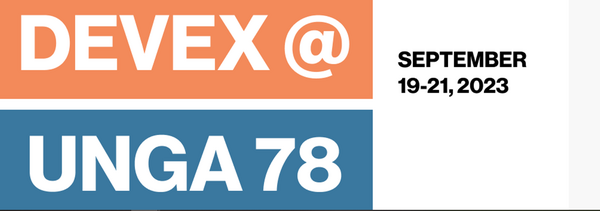
Devex "Join Devex on Sept. 19-21, for a series of events in New York City on the sidelines of the 78th Session of the United Nations General Assembly and the UN High-Level Meeting on Universal Health Coverage. This year marks the halfway point in the implementation of the Sustainable Development Goals, a blueprint for a better world that U.N. member states adopted in 2015. While advocates call for unprecedented investment, collaboration, and innovation to achieve these goals by 2030, critics argue the SDGs are unrealistic or irrelevant, pushing for new priorities. But everyone can agree on this: the context for achieving the SDGs has changed since the goals were first adopted 8 years ago. So how can we reframe the SDGs, and refine our approach, in order to make progress on these goals?"

UHC2030 "The 2023 UN High-level meeting on universal health coverage (UHC) provides countries and all stakeholders an opportunity to reinvigorate progress towards delivering health for all. An action-oriented outcome focusing on building resilient and equitable health systems is key to provide the basis for implementation and accountability, building on the 2019 Political Declaration. In September 2019, at the first United Nations High-Level Meeting on UHC, world leaders endorsed the most ambitious and comprehensive political declaration on health in history. However, according to the latest global monitoring report on universal health coverage, UHC progress is not on track, and the COVID-19 pandemic has brought the world further away from the 2023 targets set by the political declaration. (...) UHC2030’s latest State of UHC Commitment Review Key Findings also find that in 2022, progress on UHC has stalled and in some cases has reversed."
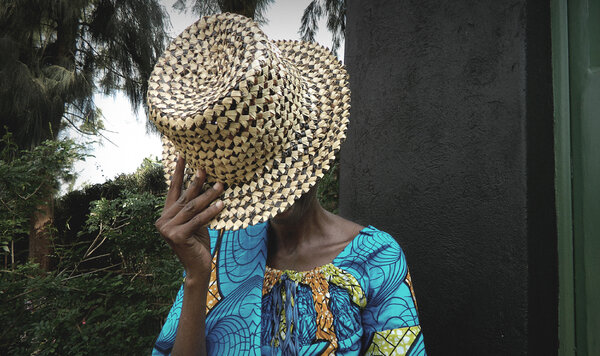
Medicus Mundi Suisse L’OMS définit la santé mentale comme un « état de bien-être qui permet à chacun de réaliser son potentiel, de faire face aux difficultés normales de la vie, de travailler avec succès et de manière productive, et d'être en mesure d'apporter une contribution à la communauté ».

World Health Organization (WHO) - European Region "On 23 October WHO/Europe, together with UNICEF and the Government of Kazakhstan, is co-hosting an international conference to celebrate the 45th anniversary of Alma-Ata and 5th anniversary of Astana declarations on primary health care. The conference "Primary health care policy and practice: implementing for better results" will be an official side event of the 73rd session of the WHO Regional Committee for Europe, to be held in Astana, Kazakhstan, in October 2023." Attached provisional programme (PDF).

Medicus Mundi Switzerland MMS is celebrating its 50th anniversary this year. On this occasion MMS will explore at the jubilee Symposium how the work and the role of Civil Societies in International Health Cooperation and in Global Health have changed and evolved. (...) While many organisations have since long described their work as an equal cooperation with their partners in the Global South rather than «aid», working practices are still too often based on power structures which perpetuate dependencies and prevent the development of local capacity.